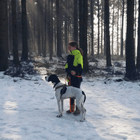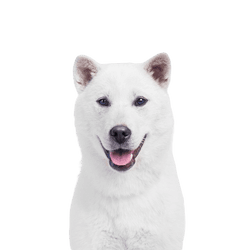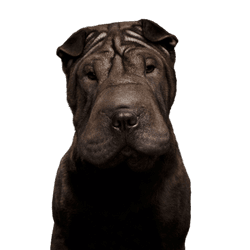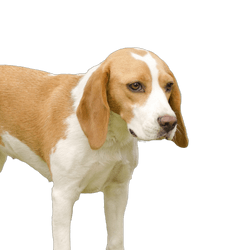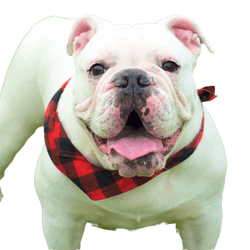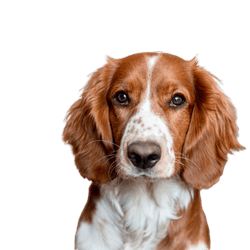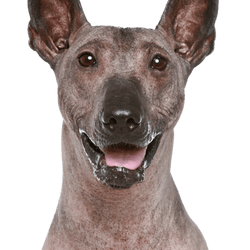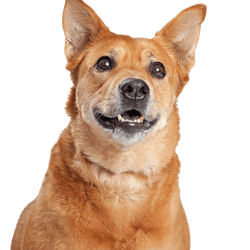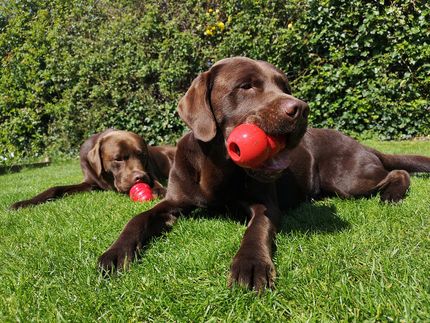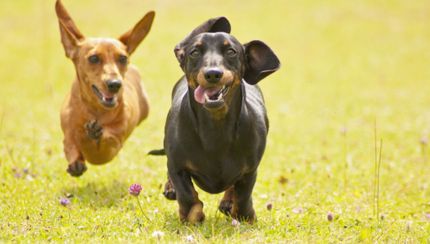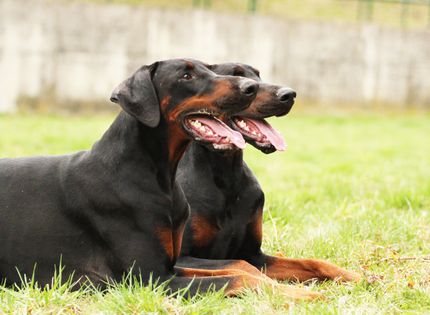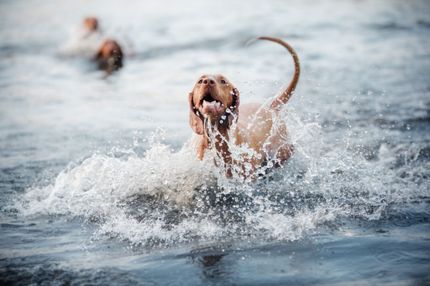Facts & Origin
PROFILE: Welsh Corgi Pembroke - origin, history & suitability.
The Welsh Corgi Pembroke originates from the county of Pembrokeshire in Wales. Its origins go back many centuries. It is often believed that the Corgi's ancestors were brought to Wales by Flemish weavers who settled there in the 10th century. Another theory is that the Vikings brought the ancestors of this small dog to Britain.
The breed gained special attention due to its close connection with the British royal family. Queen Elizabeth II got her first Corgi as a child and has always owned Corgis since then, which has increased the popularity of the breed tremendously.
Suitability
The Pembroke is noted for its adaptability and intelligence. Here are some suitability notes:
Family Dog: The Corgi Pembroke is ideal for families as it is child-friendly, loyal and affectionate.
Working Dog: Originally bred as a herding dog, he still has a strong herding instinct. This makes him an alert and active companion.
Apartment Dog: Despite his working past, he is well suited as an apartment dog as long as he is given enough exercise and activity.
Therapy and Assistance Dog: Thanks to his intelligent and sensitive nature, the Corgi Pembroke is also valued in therapy work.
Summary
The Welsh Corgi Pembroke is not only a part of British history, but also a versatile and loyal companion. Whether in the family, in the field, or in therapeutic settings, he brings joy and commitment to any task. His compact size coupled with his energy and intelligence make him a perfect companion for many walks of life.

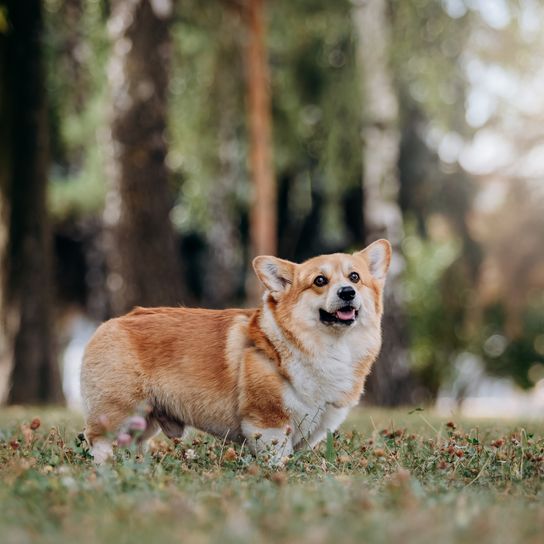
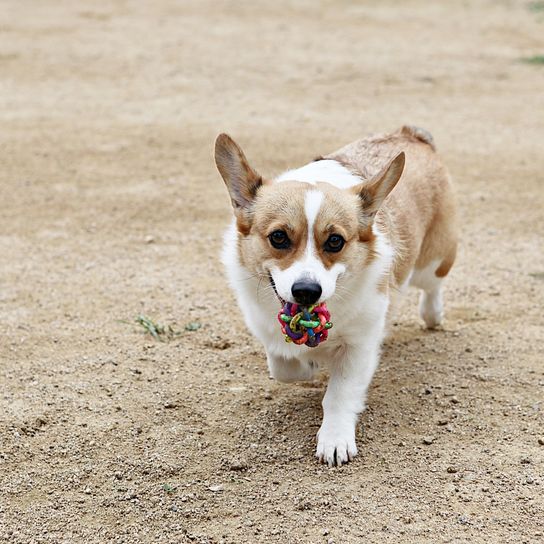
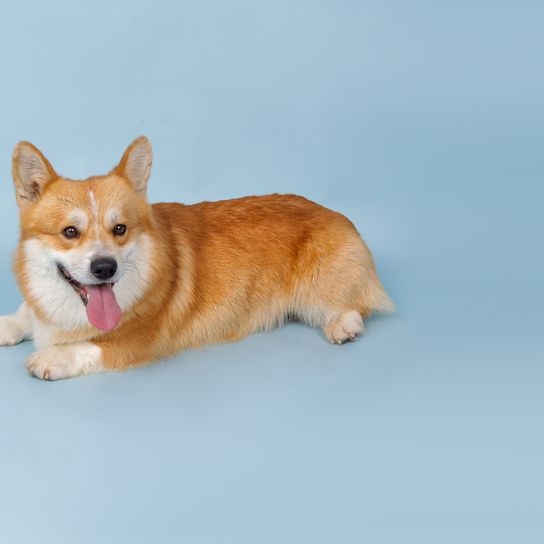
| Alternate Name | - |
| Origin | UK |
| Life expectancy | 12 - 15 years |
| Care requirements | low-maintenance |
| Activity level | low |
| FCI group | Cattledogs (except Swiss Cattledogs) |
| AKC group | Herding Group |
| KC group | not recognised |
Welsh Corgi Pembroke mixes
Attitude, character and temperament of the breed
Basic features of the character
The Welsh Corgi Pembroke is known for his lively and friendly nature. Often described as a "big dog in a small body," he displays a strong character coupled with endless energy.
Important character traits at a glance:
Intelligence: It is one of the most intelligent dog breeds and learns very quickly. This usually makes training easy, but it also means he can be easily underchallenged.
Loyalty: Very affectionate and loyal, often forming a particularly close bond with one person in the household.
Activity: Despite his small size, the Corgi Pembroke has a high activity level. He loves to play, run and herd.
Alertness: He is an excellent watchdog and tends to look at strangers with skepticism until he is sure there is no danger.
Social Behavior and Interaction with Other Animals
The Pembroke usually gets along well with other pets, especially if he has grown up with them. However, his herding instinct may cause him to try to "herd" other animals or even people by nibbling on them.
Summary
The Welsh Corgi Pembroke stands out for his strong character, intelligence and loyalty. An active and alert dog, he needs both physical and mental stimulation. His love and devotion to his human make him a valuable family member. However, it is important to do justice to his intellect and energy level to ensure a harmonious coexistence.
Character

Coat care and general grooming
The Welsh Corgi Pembroke has a double coat that requires regular grooming.
Frequency of Brushing: At least once a week, the coat should be thoroughly brushed to remove dead hair and prevent matting.
Frequency of bathing: it is recommended to bathe the Corgi only when necessary to avoid stripping the natural oils of its skin.
Health aspects
Like all breeds, the Welsh Corgi Pembroke can have certain health problems:
Hip dysplasia: a common condition in many dog breeds. Regular exams and a healthy weight can help minimize the risk.
Eye disease: Some corgis may be prone to certain eye problems. Regular checkups with a veterinarian are recommended.
Breeding and choosing a puppy
When breeding the Welsh Corgi Pembroke, great emphasis is placed on maintaining the breed's standard and health.
Recognized breeders: it is strongly recommended to buy a puppy only from a recognized breeder who performs all health tests and attaches importance to the well-being of the animals.
Socialization: A well-socialized puppy will have had positive experiences with people and other animals at an early age.
Conclusion
The care and health of the Welsh Corgi Pembroke requires regular attention, especially with regard to the coat and potential health problems. When choosing a puppy, make sure the breeder is responsible and places importance on the health and socialization of the animal.


Coat & Color Variations
The Welsh Corgi Pembroke is characterized by a short, dense, weather-resistant coat that can come in a variety of color tones.
Coat Structure: The coat consists of a dense undercoat and a coarse topcoat that protects it from adverse weather conditions.
Colors: Recognized colors include red, sable, fawn, black and tan, with white markings often appearing on the face, neck, legs and belly.
Visual Appearance.
The Welsh Corgi Pembroke presents as a small but powerful dog. His prominent, large ears and cheerful facial expression make him unmistakable. Despite his short legs, he is very agile and mobile.
Size & Weight
Size: The average shoulder height is between 25-30 cm.
Weight: An adult Welsh Corgi Pembroke usually weighs between 10-12 kg. Weight may vary depending on gender and individual differences.
Conclusion
The Welsh Corgi Pembroke is a compact, strong dog with a dense, weather-resistant coat. His color palette and friendly face make him a striking companion. It's important to watch his weight and make sure he gets a proper diet and enough exercise to stay in optimal shape.
| Fur length | medium |
| Fur | flat coated |
| Ear shape | Standing Ears |
| Tail | short |
| Anatomy | rugged |
| Size ♀ | 25 - 30 cm |
| Weight ♀ | 9 - 11 kg |
| Size ♂ | 25 - 30 cm |
| Weight ♂ | 10 - 12 kg |
| Suitable For | Beginner, Children, Seniors |



Known Diseases
Hip dysplasia (HD)
Hip dysplasia (HD) is a genetic condition in dogs where the hip joint is not shaped properly. This leads to pain, stiffness and restricted movement.
Epilepsy
Definition: Dog has epilepsy if, for example, at least two epileptic seizures occur more than 24 hours apart.
Eye diseases
Often occur with allergies and intolerances.
Disc problems
Herniated disc in dogs (discopathy). Herniated discs or dachshund paralysis cause dogs severe pain.




